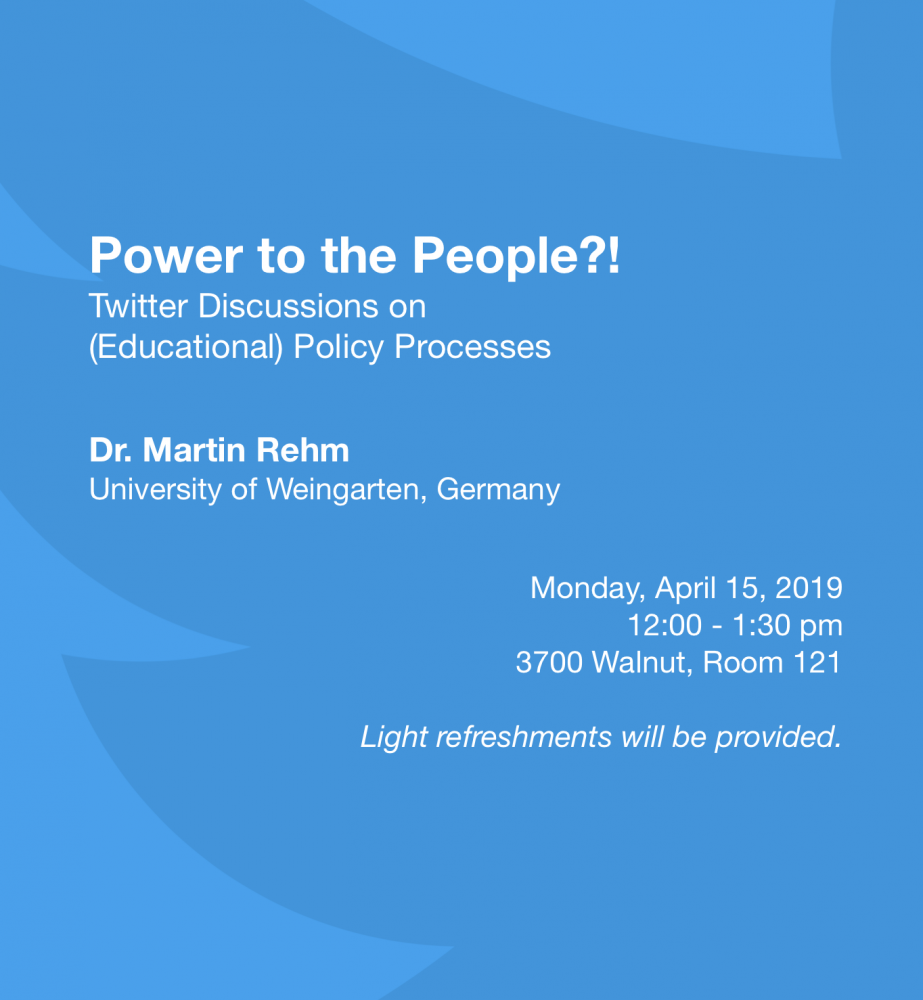Power to the People?! Twitter Discussions on (Educational) Policy Processes

Social media offer multiple parties inside and outside politics the opportunity to start bottom-up initiatives and to use their online acquired social capital to exert real influence on policy processes. This development has multiple implications, because it is becoming increasingly difficult for governments to steer the information and design of (educational) policy processes in traditional ways. Previously established roles and steering mechanisms must be put into disagreement and the government must assume a different role, in which forms of network governance are used. This raises the following question: What are the underlying communication processes when an educational policy is discussed through social media involving different networks of actors in the management of education?
In November 2014, the Dutch Government initiated a national dialogue on the future curriculum for primary and secondary in various social media. This research investigates the nature of the ensuing dialogue on Twitter, particularly the way in which actors were able to exert influence on the discussion. Building on social capital theory the research used (1) social network analysis, (2) bibliometric analysis and (3) qualitative interview analysis. The results suggest that Twitter contributes to individuals’ social capital formation. Furthermore, the results highlight how more dynamic, fluid policy processes could be supported and influenced by discussions among stakeholders (e.g. teachers and educational professionals) within social media platforms.
About Dr. Martin Rehm
Martin Rehm currently works as a Research Fellow at the University of Education Weingarten, Germany. Using mixed methods, including social network and bibliometric analyses, Dr Rehm studies informal communication and learning processes in social media; the formation & development of social capital in social media, and; the potential of social media for social (learning) networks in the context of lifelong learning. He received his Ph.D. at the Maastricht Graduate School of Governance (MGSoG) and completed a PostDoc at the University of Essen in Germany.
Event Contact
Krista Featherstonekfeat@gse.upenn.edu
